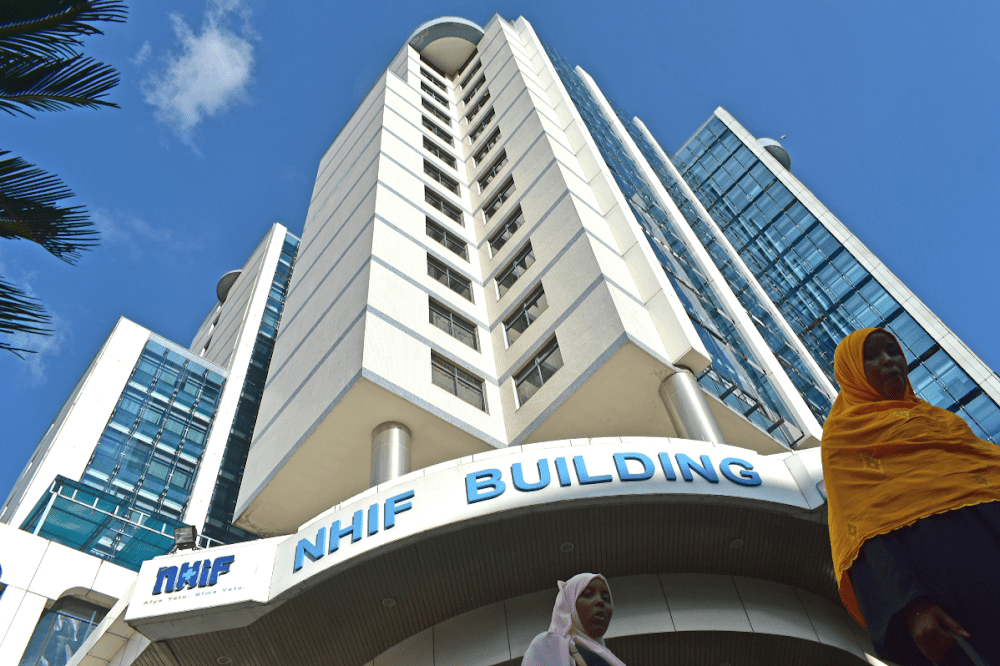By The Weekly Vision Team
A parliamentary committee has uncovered a massive scandal at the National Health Insurance Fund (NHIF), revealing that corrupt officials siphoned off a staggering Ksh 21 billion in just one year by fabricating non-existent debts. According to the Public Petitions Committee of the National Assembly, this enormous sum was diverted from several key NHIF accounts: Ksh 2.9 billion from civil servants’ schemes, Ksh 4.1 billion from the Eduafya Scheme, Ksh 525.3 million from county schemes, Ksh 780.7 million from parastatals, Ksh 191 million from retirees’ schemes, and Ksh h2.3 billion from Linda Mama.
Committee member Ernest Kagesi criticized the scheme, stating, “The officials created liability accounts knowing they had no intention or means to pay, using funds meant for other state agencies without notifying the members.” Kagesi, who led the meeting, expressed outrage over the theft, declaring, “Sh21 billion was stolen through fictitious liabilities. We are determined to uncover the full extent of this scandal.”
The scandal was brought to light by Bernard Muchere, a Fraud Risk Management consultant. He revealed that NHIF was defrauded through fictitious Incurred But Not Reported (IBNR) claims for the financial year ending June 30, 2022. Muchere argues that without a legitimate sinking fund account to back these claims, the supposed reserves were merely book entries.
Muchere detailed how these false IBNR claims, totalling approximately Sh21 billion, were offset against member contributions, leading to severe financial shortfalls. This mismanagement drastically reduced patient benefits and left many Kenyans struggling with inadequate healthcare coverage.
IBNR reserves are typically used by insurers to account for potential future claims that have occurred but have not yet been reported. Muchere explained that in the US, for instance, these reserves are set aside following natural disasters to cover anticipated claims. However, NHIF’s IBNR claims were fictitious and not based on actual, anticipated liabilities.
Muchere further pointed out that NHIF members faced card invalidations because the money had been misappropriated, leaving the fund’s coffers empty. He chose to bring the issue to Parliament rather than report it to investigative agencies like the DCI or the Ethics and Anti-Corruption Commission (EACC) due to past experiences with similar scandals.
Upon examining NHIF’s financial statements, Muchere found that the IBNR claims, amounting to over Sh21 billion, were fraudulently created and charged to member contributions, causing a severe financial crisis. This led to an inability to pay hospital bills for legitimate contributors and a significant impact on patient care.
Muchere called on the committee to demand that the NHIF Board of Management and CEO produce accurate financial statements, identify which healthcare providers received IBNR funds, and determine whether these claims were legitimate. He urged Parliament to recover the misappropriated funds if the claims were found to be false.
He also highlighted discrepancies in the audited financial statements, including the sudden appearance of IBNR reserves in the 2021/2022 financial year and the dubious origins of the reported figures. Muchere concluded that the creation of these reserves was part of a deliberate scheme to embezzle Sh21 billion from NHIF funds.
The scandal underscores significant systemic fraud risks within NHIF, which, if not addressed, could continue to exacerbate patient woes and undermine the fund’s effectiveness. Muchere is calling for a thorough investigation to hold those responsible accountable and prevent future abuses.





